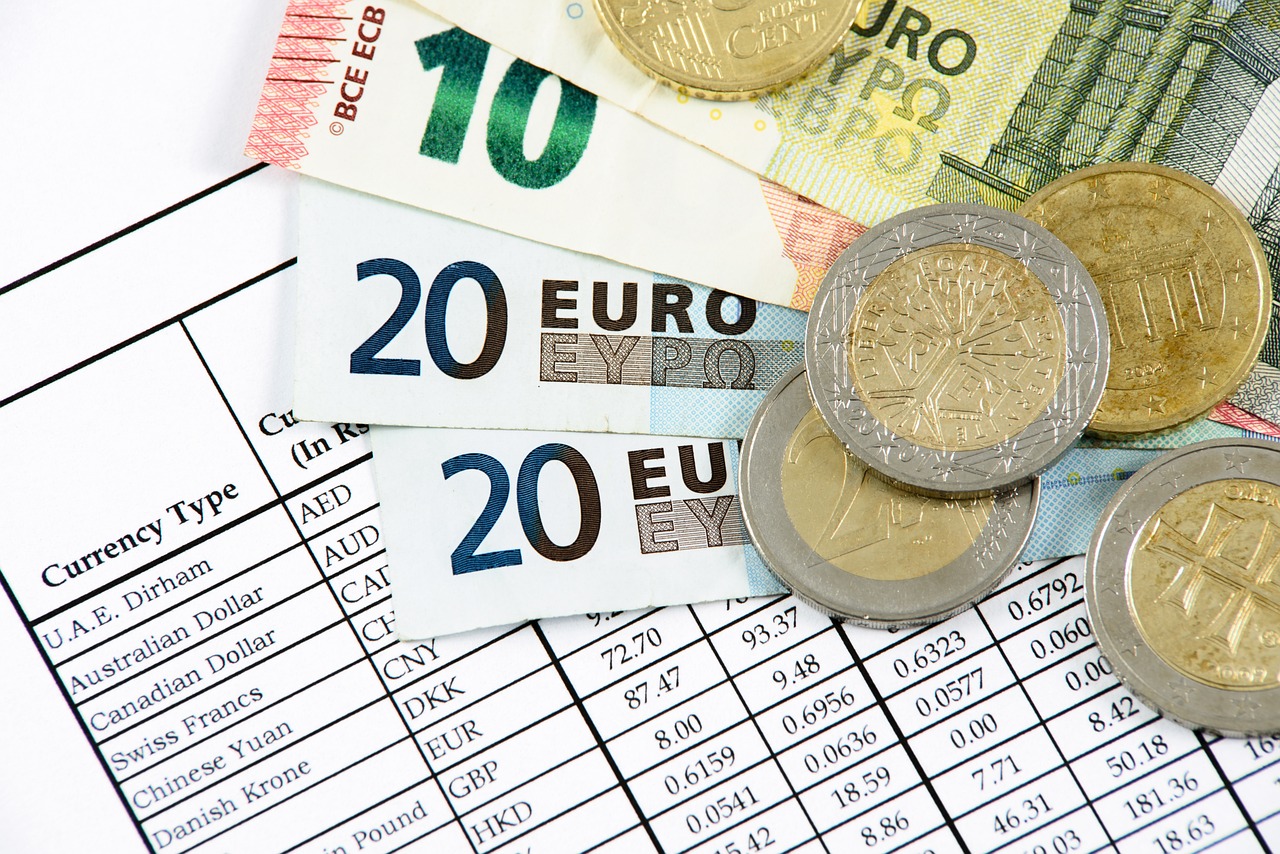Pound to Euro Exchange: Inflation, ECB Influence, Conversion Apps, Timing, and Global Factors
GPT_Global - 2025-10-27 10:30:42.0 129
How do inflation rates in the UK affect 1 pound's value in euros?
Inflation rates in the UK play a crucial role in determining the value of the British pound against other currencies, including the euro. When inflation in the UK rises, the purchasing power of the pound diminishes, meaning it will buy fewer goods and services both domestically and abroad. This can lead to a decrease in the pound's value relative to the euro.
For businesses involved in remittance services, understanding these fluctuations is vital. A weakening pound due to high inflation means that recipients in the Eurozone may receive less value for each pound sent, potentially leading to dissatisfaction and affecting customer loyalty. On the other hand, if inflation in the UK is controlled and the pound remains strong, remittance senders and recipients alike can benefit from better exchange rates.
In conclusion, the relationship between UK inflation rates and the pound’s value against the euro directly impacts remittance businesses. Staying informed about inflation trends helps businesses optimize exchange rates and ensure that customers get the best possible value when transferring funds across borders.

What impact does the European Central Bank have on the pound-euro exchange rate?
The European Central Bank (ECB) plays a crucial role in determining the strength of the euro, which directly influences the pound-euro exchange rate. As the central institution for monetary policy in the Eurozone, the ECB’s decisions on interest rates, inflation targets, and economic stability can significantly impact how the euro performs against other currencies, including the British pound.
When the ECB raises interest rates to curb inflation, it often leads to a stronger euro, as investors seek higher returns from euro-denominated assets. Conversely, if the ECB cuts rates or signals economic weakness, the euro may depreciate, potentially making the pound stronger in comparison. This fluctuation in the euro-pounds exchange rate can affect remittance businesses, as individuals and companies may see the cost of sending money across borders change dramatically.
For remittance companies, understanding the impact of the ECB on currency fluctuations is vital. By closely monitoring ECB policies and adjusting their strategies, businesses can offer more competitive exchange rates, ultimately benefiting their customers. Those who frequently send money between the UK and the Eurozone should be aware of the ECB’s influence to get the best rates for their transfers.
How much would 100 pounds be in euros at the current exchange rate?
When transferring money internationally, knowing the exchange rate is crucial. If you're sending 100 pounds to a loved one in the Eurozone, the conversion rate plays a significant role in how much they will receive. At the current exchange rate, 1 British Pound equals approximately 1.14 Euros, meaning 100 pounds would be equivalent to 114 Euros. However, exchange rates fluctuate regularly due to global economic factors.
As a remittance service provider, offering competitive exchange rates can make a big difference to your customers. You want to ensure that they get the best value for their money. For individuals sending money abroad, it's important to check the rates before making a transaction, as slight variations in exchange rates can affect the final amount received.
At our remittance service, we strive to offer transparent and up-to-date exchange rates to ensure your international money transfers are smooth and cost-effective. Whether you're sending money to family or paying for services overseas, understanding the current exchange rate between pounds and euros can help you make informed decisions and maximize your transfer value.
Is there a mobile app for real-time conversion from pound to euro?
In today’s fast-paced world, managing currency conversions efficiently is essential, especially for remittance businesses. Many individuals sending money across borders often find themselves needing to convert pounds to euros in real-time. A mobile app for this purpose can be a game-changer, ensuring quick and accurate exchanges.
When transferring money internationally, especially in the UK and EU, exchange rates fluctuate. Having an app that provides real-time conversion from pound to euro can simplify the process and prevent potential loss due to exchange rate changes. By using such an app, users can calculate the exact amount they need to send, saving both time and money.
For remittance companies, integrating real-time currency conversion tools into their apps is becoming increasingly crucial. It helps streamline transactions, offers transparency, and enhances customer satisfaction. Moreover, these apps often provide additional features like historical rate tracking and currency alerts, further benefiting users in managing their finances better.
In conclusion, a mobile app offering real-time pound to euro conversion is an invaluable tool for anyone involved in international remittances, providing greater efficiency and helping businesses stay competitive in the global marketplace.
How is the euro related to other currencies like the dollar compared to the pound?
Understanding the relationship between the euro, the U.S. dollar, and the British pound is crucial for businesses involved in remittance services. The euro (EUR) is the official currency of the Eurozone, and its value fluctuates against major currencies like the U.S. dollar (USD) and the British pound (GBP).
The euro and the U.S. dollar are two of the most traded currencies globally. Exchange rates between these currencies are influenced by various factors, such as interest rates, inflation, and economic stability. For remittance businesses, knowing the exchange rate between the euro and the dollar helps in offering competitive rates and managing transfer costs effectively.
On the other hand, the euro-pound relationship is shaped by economic conditions in the European Union and the UK. With the Brexit transition still impacting financial markets, the euro-to-pound rate has experienced volatility. Remittance businesses must track these fluctuations to ensure customers receive the best value for their money when sending funds across borders.
Ultimately, for a remittance company, understanding these currency relationships is essential in providing cost-effective, reliable services that meet customer needs while managing exchange rate risks.
What are the best times of day to convert 1 pound to euro for a better rate?
When it comes to converting 1 pound to euro for remittance purposes, timing plays a crucial role in securing the best exchange rates. Financial markets are constantly fluctuating, and understanding when to make your conversion can result in significant savings.
The best times of day to convert currencies often depend on market hours. Generally, early mornings during the opening of European markets (around 7:00 AM GMT) offer favorable rates as the market is still adjusting to global news. Additionally, the late afternoon, between 3:00 PM and 5:00 PM GMT, can also be a good window as traders finalize their positions before market close.
However, it’s important to keep an eye on market trends and news that may affect currency fluctuations. Events such as economic reports, geopolitical developments, and central bank decisions can lead to significant volatility. Monitoring these factors and consulting with a trusted remittance service provider can help you choose the right time to exchange 1 pound for euro.
In conclusion, the best times for currency conversion are typically early mornings and late afternoons, but staying informed about global market events will ensure you make the most out of your conversion.
Are there any significant holidays that affect the pound to euro exchange?
Understanding the impact of significant holidays on the pound to euro exchange rate is essential for businesses involved in remittance. Exchange rates can fluctuate due to reduced market activity during holiday periods, and this can affect the cost of transferring money across borders.
For example, major holidays such as Christmas, Easter, and New Year often lead to lower trading volumes, which can cause the pound to euro exchange rate to become more volatile. During these times, financial institutions and markets operate with limited hours, affecting liquidity. As a result, those sending money during these holidays may experience slightly less favorable exchange rates.
Additionally, public holidays in the UK or Eurozone, like bank holidays, can create short-term shifts in the market. These shifts may also be influenced by local economic events or announcements that coincide with major holidays. Remittance businesses need to consider these dates and anticipate potential rate changes to provide clients with accurate advice and competitive rates.
In conclusion, while holidays can lead to fluctuations in the pound to euro exchange rate, staying informed about these dates can help businesses offer better service and avoid any surprises when transferring money across borders.
About Panda Remit
Panda Remit is committed to providing global users with more convenient, safe, reliable, and affordable online cross-border remittance services。
International remittance services from more than 30 countries/regions around the world are now available: including Japan, Hong Kong, Europe, the United States, Australia, and other markets, and are recognized and trusted by millions of users around the world.
Visit Panda Remit Official Website or Download PandaRemit App, to learn more about remittance info.


